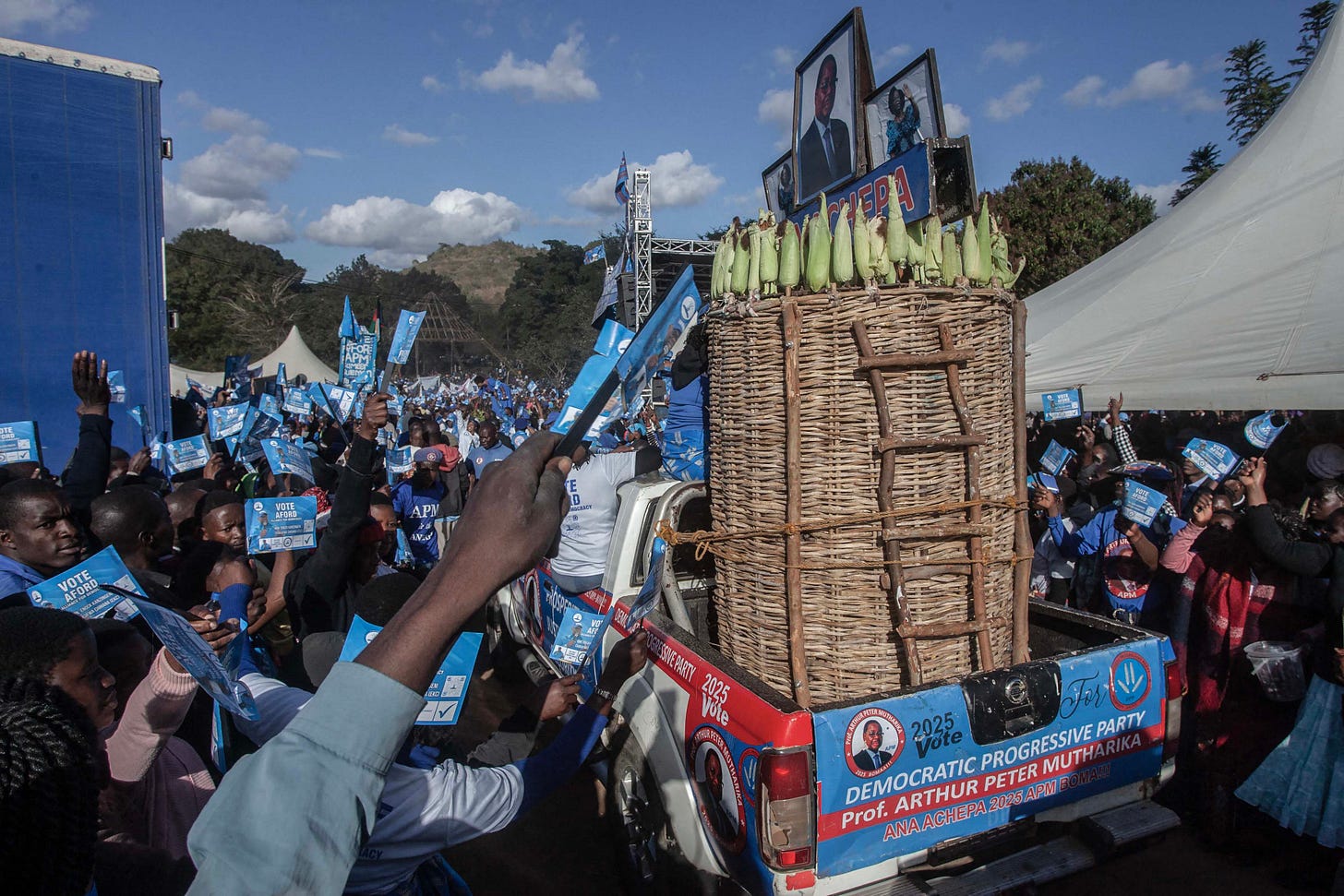Hoping for different results from the usual suspects
It’s time for Malawian voters to elect a new leader, but will they even bother turning out this time?
Jack McBrams in Lilongwe

The stakes in next week’s presidential elections couldn’t be higher. Queues for petrol snake for kilometres in some parts of Malawi. Inflation hovers at about 30%, putting even maize, a staple food, out of reach for many. Yet on Tuesday, Malawian voters will find an all-toofamiliar cast on the ballot: President Lazarus Chakwera, his predecessor Peter Mutharika, former president Joyce Banda, and current vice-president Michael Usi.
Thirteen others are contesting the vote, but name recognition and past records mean that only a few matter.
Chakwera, elected in 2020 on his promises of economic revival and clean governance, is accused of squandering that goodwill. A forex crisis constrained the economy and, although some infrastructure has been built, his administration’s performance has been “lacklustre at best”, as Professor Boniface Dulani of the University of Malawi puts it.
Disappointment with Chakwera and his Malawi Congress Party has breathed new life into Mutharika’s Democratic Progressive Party. Mutharika, who lost the presidency after mass protests and a court-ordered election rerun in 2020, is now on the offensive. Polls give the DPP the edge, though not enough to cross Malawi’s 50% +1 threshold.
Ultimately, “electoral alliances will determine the winner”, according to Michael Jana, a political scientist based at the University of the Witwatersrand.
But déjà vu may keep many voters away. “People are now presented with the same old leaders whose weaknesses are well documented,” said Jana.

